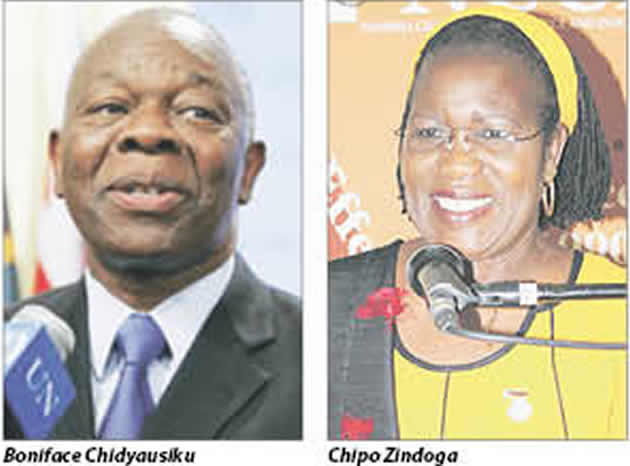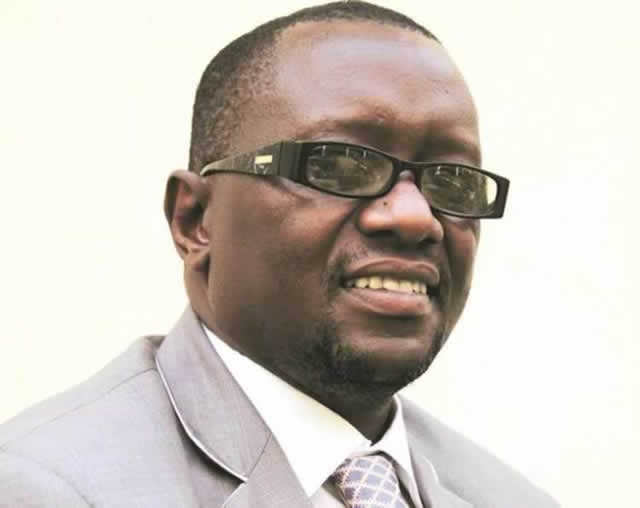Is it time for diplomatic service reform?

 Nick Mangwana View from the Diaspora
Nick Mangwana View from the Diaspora
Last week this column expressed outrage at the treatment of Zimbabwe’s foreign-based diplomats by the parent ministry. The irony of the whole matter is that the ministry has former diplomats heading it. People that have been there and people that know how important it is to be given resources for one to function in a foreign land. The nation will be pleased to learn that there have been positive responses to criticism from the ministry. When the nation cries for a listening Government, this is all it wants.
In the comments section of the op-ed there were two contrasting views. One view was that Zimbabwe cannot afford 43 missions on a paltry $36.9 million budget for the whole ministry. Zimbabwe should cut its cloth according to its own fiscal size. A case for rationalisation of the number of missions as well as the size of personnel in these missions was made.
The contrasting view was that Zimbabwe has some of the finest diplomatic brains around. Those comments credited Zimbabwe’s stature in organisations like the AU, COMESA, SADC and United Nations to our diplomats. It also lauded some of our diplomats for thwarting the imposition of mandatory Security Council sanctions against Zimbabwe in 2008 and urged the nation never to forget. Zimbabwe has many friends despite the efforts of detractors to make the country a pariah due to the sterling work of its diplomats.
These are positives of Zimbabwean diplomacy. Both views seemed to make a lot of sense and it is a good thing that something is being done about this. But it is time Zimbabwe’s diplomatic services undergoes reform to make it fit for the 21st century in line with advanced information communication technology and the shrinking world size in terms of enhanced connectivity. This interconnectedness is an opportunity for Zimbabwe to embrace new geostrategic approach. The current one was relevant for the Cold War, and certainly not for the current geopolitical conditions.
The diplomat’s role is underpinned by the three functions of representing their country, negotiating bilateral deals or positions as well as disputes and exchanging information between the two countries. All these things should be done today differently from the way they were done 30 years ago.
Some say countries should always maintain embassies as a sign of friendship, but it is countries which are unfriendly that have embassies.
We used to hear of diplomatic bags moving information. Now we hear of diplomatic cables (leaking). Relations between nations have become so dynamic and if ambassadors do not create their own political space they risk rendering themselves obsolete.
One of the roles of diplomats is gathering information in the hosting country and relay to the home country which help shape their home country’s foreign policy.
Now this information is readily available without the need for too many boots on the ground. Events in a foreign country can easily be monitored through cable television and the Internet information hubs. It is things like national mood that normally require one to be physically present, but the function and number is now different.
International relations have changed so much that maybe this is an opportunity for Zimbabwe to be ahead of the game. The issue of a bi-polarised world, where a nation had to gravitate around one axis in contrast to a contradicting one is gone. There are new issues in international relations. Issues like global warming, the scourge of terrorism, organised crime, global financial crisis and other earthly ethics issues.
No embassy is equipped with enough skills power to handle each of these issues. These are normally addressed directly from the home country side-lining the institutionalised diplomatic missions. Different governments deal directly with counterparts, by-passing the embassy. Issues like Visas are either franchised or have one office in any global region dealing with them. In any case the application for a Zimbabwean Visa is done online and the application itself is handled in Harare.
The Ministry of Foreign Affairs (MFA) should not miss this opportunity to convert challenges into opportunities. There are countries that don’t need to have State actors permanently present to have effective foreign relations. While having a diplomatic relationship symbolises the value placed upon a relationship and the absence of hostilities between nations and withdrawing an ambassador may be read as an action of hostility or downgrading a relationship, an organic natural thinning and shrinkage approach could be used.
Do our national leaders still exchange letters delivered by hand through a messenger from one ruler to another? Knowing the beauty of tradition one would guess some still do. Those who are on very good terms now just pick up the phone and speak to one another. David Cameron and Barack Obama do. Of course there are always the snooping challenges that come with it. But be that the case as it may, a lot of world leaders now simply call each other. Fidel Castro and Hugo Chavez used to call each other. That is not to say that people should do away with emissaries, but these should be used in matters in deserving matters. People build much better relationships when they talk to each other directly.
Whether we like it or not parts of current protocols are just superfluous regimentation.
There is no doubt that a diplomatic mission is the custodial institution knowledge of the hosting state. They hold aggregated idiosyncratic information, but so are strategic think tanks and specialist intelligence analyst hubs. What is being advocated is not to do away with embassies totally. What is needed is a complete reconfiguration of the missions.
In any case our hardworking Foreign Minister accumulates so many air miles travelling from place to place obviously going over the stationed ambassadors directly to his counterparts in different countries. The embassy becomes just a facilitative bureaucratic infrastructure. Maybe this explains why these ambassadors are considered bottom of the totem pole when it comes to disbursement of funds.
But it is not as simple as that. Talk to those that saw Chipo Zindoga in action in the aftermath of Murambatsvina or Boniface Chidyausiku at the United Nations in 2008 and you will know that these institutions need to be reformed and not to be done away with. This suggests again that there is enough space for shuttle diplomacy, back channel and resident diplomacy. But resident diplomacy needs streamlining.
A lot of multilateral diplomacy is handled from the MFA and of course ,the Office of the President and Cabinet at home, so the need for a very big and expensive resident mission cannot be justified. Having extolled the sterling work done by a lot of our ambassadors it will be not right not to mention the mediocrity displayed by some of them.
Those that leave no legacy whatsoever. Some serve eight years, but there is no single investment they bring, no improvement in relations. This normally happens when the posting is of either a failed politician or an old and tired civil servant who doesn’t want to ruffle furthers. They don’t interact with the Zimbabwean community in their country of posting. It is as if they are not there. You will only know that they existed when they die and it is announced. Those have to reform or go as well.
While SADC is not a superstrate one can still argue that there is nothing wrong with thinking about the idea of shared diplomatic missions between friendly states in the region. That does not compromise the country’s sovereignty at all. Countries already share intelligence and have joint task forces in security matters. The Zambian approach to diplomacy is not very different from Zimbabwe’s especially in countries like Azerbaijan or Belarus.
One other way alluded above is to have a Diplomatic think tank comprised of Zimbabwean experts in different regions and different areas come together and write objective papers and draft policy proposals based on the latest information from those regions. This what will be used by the MFA to formulate the Foreign policy of Zimbabwe with respect to each country.
Non-disclosure agreements or even the Official Secrets Act can be signed by these intellectuals and experts after the appropriate vetting.
Their fees are nowhere near what it is costing for the upkeep of a large civil service in a foreign country and in some cases in some of the most expensive cities in this world. They will be more dynamic and nimble than the current embassies.
There is a compelling case for diplomatic service reform by Zimbabwe. More of the same cannot work. The status quo is not sustainable and there is a lot of damage to the reputation of the country and therefore very self-defeating. Our foreign policy to each nation needs to be articulated capturing our national aspirations.
Reforming our diplomatic service will not only help in improving the sorry state they are in. It will also improve the country’s image as well as bring effectiveness by having a fit for purpose service. But more importantly it will save scarce resources.










Comments